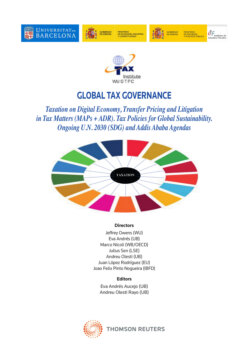Читать книгу Global Tax Governance. Taxation on Digital Economy, Transfer Pricing and Litigation in Tax Matters (MAPs + ADR) Policies for Global Sustainability. Ongoing U.N. 2030 (SDG) and Addis Ababa Agendas - Jeffrey Owens - Страница 29
На сайте Литреса книга снята с продажи.
TODAY: MORE DATA FASTER
ОглавлениеThe path being tread today is one of more data faster – a big data approach. This path is grounded in a belief that the future of risk analysis and tax audits will be based in automated and massive cross-checking of information. Using a second set of data to validate voluntary tax compliance has a long and successful history, for example the US IRS 1099 reporting goes back over 100 years. Today’s trend is to amass as much detailed data on taxpayers and do so in as close to real time, as possible. For businesses this means purchase and sales transaction details, financial records, inventory, and goods movement are all in scope for collection. Mass consumer collection has so far only focused on anonymized e-receipts, a fact that may change with adoption of central bank digital currencies.
Methods and timing of collection vary from real time via B2B e-invoicing and B2C ePOS to use of portals or email for periodic uploading and transmission of structured sets of detailed data. Tax administrators are also scraping information off websites and integrating data from other sources such as financial institutions and blockchain/cryptocurrency networks and exchanges. Mandating business use of accounting systems or components therein that automatically send information to the tax authorities is an emerging trend as well, with Russia leading in this area. One step behind a mandated approach is the Netherlands, Singapore and Finland which are providing in one case software components or API’s each of which integrate into commercial accounting packages. Beyond collection, information is increasingly being shared across jurisdictions with the EU leading the way.37
Taken to its logical conclusion this results in all the records of a business and substantial individual taxpayer information being collected and stored by the tax administrations. Tax administrations are beginning to be awash in data. But has it made a difference to date?
Empirical evidence indicates that efforts to date, principally in the e-invoicing and e-POS area, have yielded benefits in terms of increasing revenue and reducing the size of the informal economy; a 38% increase in retail sector vat collection between 2016 and 2017 when electronic cash registers were implemented in Russia, Mexico bringing 4.2 million micro-businesses into the formal economy when e-invoicing was introduced, and the list goes on. But what is also clear is that efforts to cross-check data at scale have in many cases seen failures, for example India has had to backtrack on its efforts to tie out input and output VAT in its massive GSDN project. Further, the tax gap remains stubbornly high. For example, efforts in the EU reduced the VAT Gap from 11.5% in 2017 to 11% in 2018 and an estimated 10% in 2019 only to expect a rise in 2020.
What we can take away is that a well-designed and implemented program, one element of which is collecting detailed data relevant to tax, drives compliance. But what is unclear is to what extent the benefit accrues to elements such as communication, signaling effect, or other aspects of such efforts on the taxpayer community versus the actual increase in audit risk assessment and targeting effectiveness through use of large datasets. Indeed, if tax administrations are simply collecting data but not able to effectively make use of it, perhaps amassing such a large and sensitive set of data is a liability, in terms of data security, rather than an asset. For example, a recent survey indicates that most public sector organizations have experienced a cyberattack. In fact, 88% of surveyed organizations have suffered at least one damaging cyberattack over the past two years. 62% have experienced two or more.38
We explore this question from two angles:
• Assuming collection and centralization, what approaches can be used to unlock value in large disparate datasets in need of cross-validation?
• Given the sensitivity and risk inherent in amassing such data, could a digitized form of cooperative compliance present a compelling alternative?
